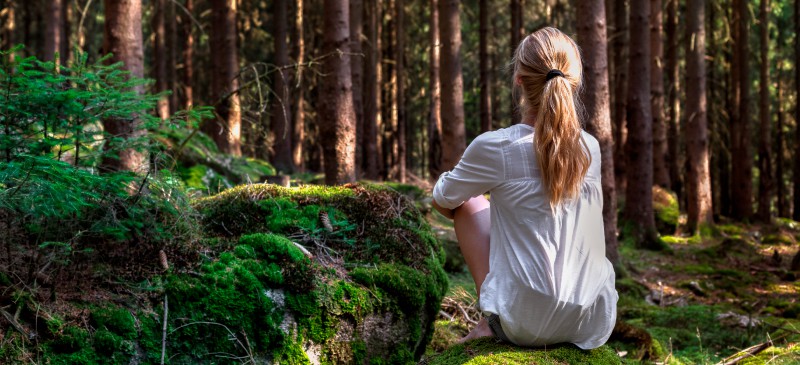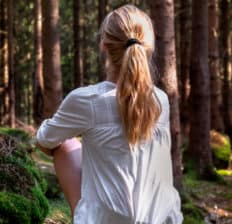This Dr. Axe content is medically reviewed or fact checked to ensure factually accurate information.
With strict editorial sourcing guidelines, we only link to academic research institutions, reputable media sites and, when research is available, medically peer-reviewed studies. Note that the numbers in parentheses (1, 2, etc.) are clickable links to these studies.
The information in our articles is NOT intended to replace a one-on-one relationship with a qualified health care professional and is not intended as medical advice.
This article is based on scientific evidence, written by experts and fact checked by our trained editorial staff. Note that the numbers in parentheses (1, 2, etc.) are clickable links to medically peer-reviewed studies.
Our team includes licensed nutritionists and dietitians, certified health education specialists, as well as certified strength and conditioning specialists, personal trainers and corrective exercise specialists. Our team aims to be not only thorough with its research, but also objective and unbiased.
The information in our articles is NOT intended to replace a one-on-one relationship with a qualified health care professional and is not intended as medical advice.
Ecotherapy: Benefits of Nature Therapy + How to Do It
May 8, 2021

According to a 2018 study published in the journal Frontiers in Psychology, when we lose our connection with nature, it “can result in a cost to humans resulting in slower recovery times, greater distress and reduced well-being.” The antidote to this is referred to by psychologists as “ecotherapy,” which involves interactions with nature to enhance healing and growth.
What’s the point of ecotherapy, aka nature therapy? While there are lots of reasons to spend more time outside, it’s mainly used to naturally improve people’s moods and energy levels.
Many studies have found that being outdoors in nature has a natural calming effect and can help manage issues such as depression, anxiety, PTSD, fatigue, substance abuse disorders and insomnia. This is exactly why ecotherapy was recommended during the coronavirus 2019 (COVID-19) crisis, in order to help people cope with social isolation and the “consequent psychosocial aftermath.”
What Is Ecotherapy?
Ecotherapy, also called ecopsychology, is a mental health approach that utilizes the positive effects of nature to lift one’s sense of well-being. It involves spending time outdoors in various ways, such as by gardening, exercising outside, or simply laying on the beach or in a park.
Researchers often refer to ecotherapy interventions as “environmental therapies” and “animal-assisted therapies,” although there are other types too. For example, social and therapeutic horticulture, care farming, green exercise, environmental conservation, and wilderness therapy are some approaches used to promote mental health.
These interventions are recommended for just about everybody, including both children and the elderly, and have demonstrated promising findings in many studies, especially for people living with mental disorders.
Types/Varieties
There are lots of different ways to practice ecotherapy, depending on your location, physical abilities and preferences. Some popular nature therapy/ecotherapy activities include:
- Walking outdoors, such as in parks, on trails, etc.
- Hiking, including in the woods, up mountains or anywhere else that’s accessible
- Gardening (also called horticultural therapy)
- Laying or walking on the beach or swimming in the ocean
- “Forest bathing,” also called shinrin-yoku, in which you relax in a forest environment by taking in your surroundings
- Cycling or running outdoors
- Bird watching
- Earthing (walking barefoot on the Earth’s surface)
- Spending time outdoors with animals, such as horses or your dog
- Stargazing (laying outdoors at night and looking up at the sky)
- Having a picnic in the grass
- “Giving back” to nature by collecting trash and litter, planting trees, cleaning up beaches or parks, etc.
Benefits/Uses
1. Can Help Manage Depression
A 2020 systematic review of randomized control trials focused on exposure to ecotherapy interventions found evidence for the efficacy of some interventions among people with depression, anxiety, PTSD, substance-related and addictive disorders, and schizophrenia.
A large body of research suggests that both children and adults can experience improvements in their moods and gain more resilience to stress when they regularly spend time outdoors (which is considered about 120 minutes of outdoor time weekly). For example, one study published in the journal Mind found that 95 percent of participants who were interviewed said their mood improved after spending time outside, changing from depressed, stressed and anxious to more calm and balanced.
In addition, people who practice ecotherapy seem to benefit from higher levels of self-worth and improved motivation, which leads to greater focus and concentration.
2. Has Natural Relaxing/Calming Effects
When you’re enjoying the outdoors, it’s easy to get lost in the moment and “stay present,” which means that ecotherapy is one way to establish and maintain a mindfulness habit. This has been shown to benefit those with anxiety symptoms and PTSD symptoms, leading to reductions in “stress hormones” such as cortisol.
Doing things outside, such as walking, meditating, hiking, etc., can be naturally relaxing because it helps us become absorbed in our environment and distracts us from pain and unpleasant thoughts. This “absorption” can be due to sounds of nature plus the green/colorful scenery, which has a positive effect on your nervous system and helps reduce symptoms like racing thoughts, a fast heart beat, muscle tension and trouble focusing.
3. Can Lift Your Energy and Prevent Burnout
Many people find that taking breaks throughout the day and getting outdoors can help to lift their mood and restore their energy, partly because it keeps people from endlessly working on screens and multitasking, which can be draining. As little as 10 minutes spent in natural spaces has been shown to be effective at improving mood, focus and physiological markers like blood pressure and heart rate.
Depending on the activities you’re doing, some types of ecotherapy can also serve as moderate forms of exercise, such as gardening, cycling, walking or swimming.
Regularly exercising outdoors has many benefits for both your mind and body, including having a positive impact on your sleep, self-esteem and immune function. It’s even more beneficial if it involves exposure to sunlight, which can help you maintain normal vitamin D levels and is important for brain, immune and cognitive health.
4. Improves Social Connection and a Sense of Belonging
Nature has a way of making us feel connected to each other, the larger world and ourselves. A 2019 study found that time spent in nature, such as gardening with a community, may lead to greater emotional well-being because it can lead to greater insight into one’s own illness and contribute to increased feeling of calmness and belonging, all of which are usually not seen in people dealing with depression and anxiety.
In this particular study, participants reported improved mood and more pro-social behavior; a greater sense of community, belonging, shared purpose and reduced isolation; and a welcomed sense of distraction from unpleasant thoughts.
Aside from community gardening, other nature therapy activities that can help reduce loneliness include outdoor exercise, meditation or art classes. Camping with others, taking group hikes and walking with a workout buddy are also ways to connect socially while benefiting from the positive effects of the outdoors.
How to Do It
Whether you live close to a beach, body of water, forest, mountains or none of the above, there are various ways to practice ecotherapy. Here are some nature therapy ideas depending on your location and which types of activities you enjoy most:
- Create a garden in your backyard, or join a community garden. Gardening alone can be very tranquil and serve as a form of meditation in many ways, while gardening with others is a good way to socialize and get to know new neighbors. If the weather isn’t conducive to being outside, try indoor ecotherapy projects like growing an indoor herb garden.
- Spend some time with animals, including your pets. Visit a horse stable, bird sanctuary or local farm, or take your dog for walks somewhere scenic.
- Shop at outdoors farmers markets rather than inside big supermarkets.
- Go camping.
- Start a bonfire on a beach somewhere safe.
- Take your workout outdoors, such as by going running/walking on a trail, doing body weight exercises in a park or jogging along a beach.
- Try an outdoor painting or art class. Or simply bring your own arts, crafts or a book outside.
- Take an outdoor yoga, tai chi or meditation class. These are often offered in community parks, at certain beaches or outdoors at recreation centers.
- Try forest bathing. Find a local forest or even a park, sit or lay somewhere comfortable, and then practice all of your senses as you pay attention to your surroundings and take in the moment.
- Enroll in a wilderness or adventure therapy program. These are available for both adults and children and typically involve hiking with a group, camping, mountain climbing and other outdoors activities.
- Find ways to give back to nature. This can involve recycling, composting, and lowering your carbon footprint by cycling to work or limiting driving.
Conclusion
- What is ecotherapy? Also called ecopsychology and nature therapy, it’s a mental health approach that utilizes the positive effects of nature to lift one’s sense of well-being.
- It involves spending time outdoors in various ways in order to help reduce anxiety, depression, fatigue, low motivation, loneliness and other issues.
- Examples of ecotherapy activities include gardening, exercising outside, laying on the beach or in a park, hiking, meditating outdoors, forest bathing, swimming in the ocean, etc.
- To get the most benefits from ecotherapy, consider joining a group/community, taking a class outdoors, exercising in sunlight, and practicing being mindful and using all of your senses when in nature.




